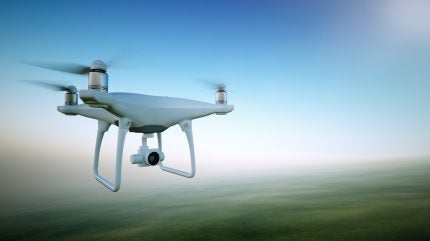
The UK government has announced funding of more than £20m ($25.8m) to support the integration of drones and flying taxis into the country’s aviation network.
This funding aims to overcome growth barriers and capitalise on opportunities for improved public services, while reducing carbon emissions in line with the Plan for Change.
Aviation Minister Mike Kane confirmed the new funding will help advance aviation technology for various applications, including healthcare, policing, infrastructure inspection, and delivery services.
Kane said: “I want the UK to have the most advanced aviation technology ecosystem in the world.
“That means creating a nimble regulatory environment and a culture of innovation so everyone can benefit from cutting-edge transport while tackling emissions, traffic and potentially saving lives.”
The Department for Transport (DfT), Civil Aviation Authority (CAA), and the newly established Regulatory Innovation Office (RIO) at the Department for Science, Innovation and Technology (DSIT) are set to streamline regulatory processes to facilitate the commercialisation of these emerging technologies.
The RIO will assist the DfT and CAA in integrating drones and flying taxis more rapidly into the business sector.
This includes a consultation on mandatory electronic conspicuity standards, which allow for the safe coexistence of drones and crewed aircraft by electronically sharing their locations.
The CAA is set to receive £16.5m ($21.5m) in the 2025-2026 period to develop a regulatory programme for drones to fly beyond visual line of sight (BVLOS) and to advance the routine use of eVTOLs in the UK.
This includes publishing a piloted eVTOL ‘roadmap’, ‘drone pathways’ for industry guidance, and consultations on uncrewed traffic management (UTM) and Detect and Avoid (DAA) technology.
The Future Flight Challenge will be allocated up to £5m (6.4m) from the DfT and Innovate UK to assist the industry in transforming these technologies into profitable businesses.
A collaborative effort between regulators, drone operators, local authorities, and the government will form the Future of Flight industry group to assist the government in its mission to transform technology in the aviation sector.
In addition, the chancellor has also indicated that regulations will be simplified to enable two-year airspace changes for drone operations, allowing for extended safe flights and data collection to inform future services.
Last month, the DfT allocated £450,000 ($584,370) to six British tech companies to enhance the development of advanced screening technology.
This investment in smart airport solutions aims to improve passenger experiences and strengthen security measures.



